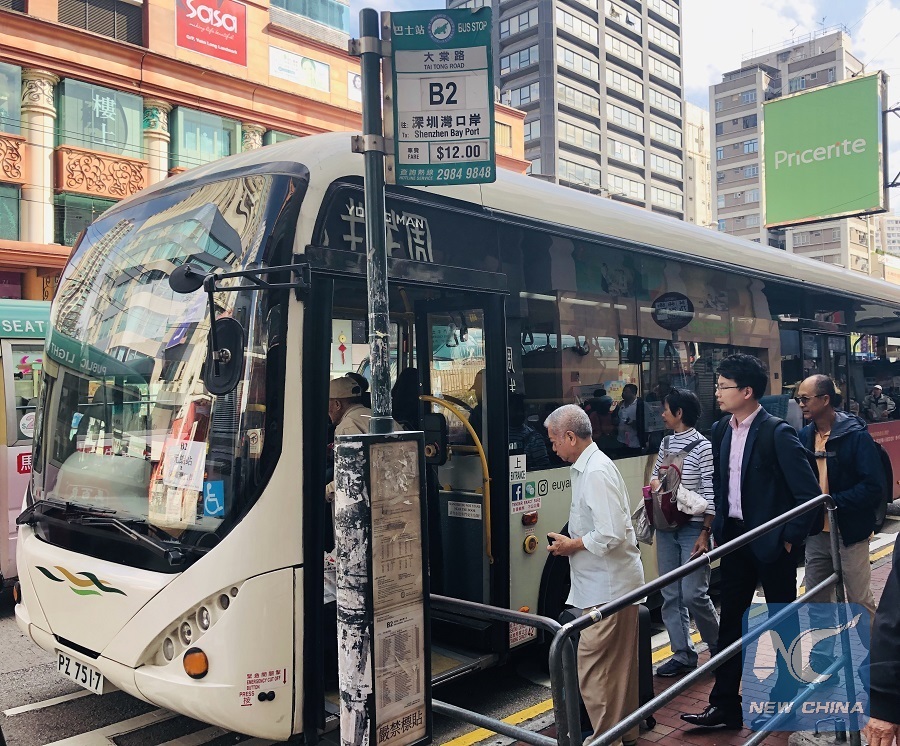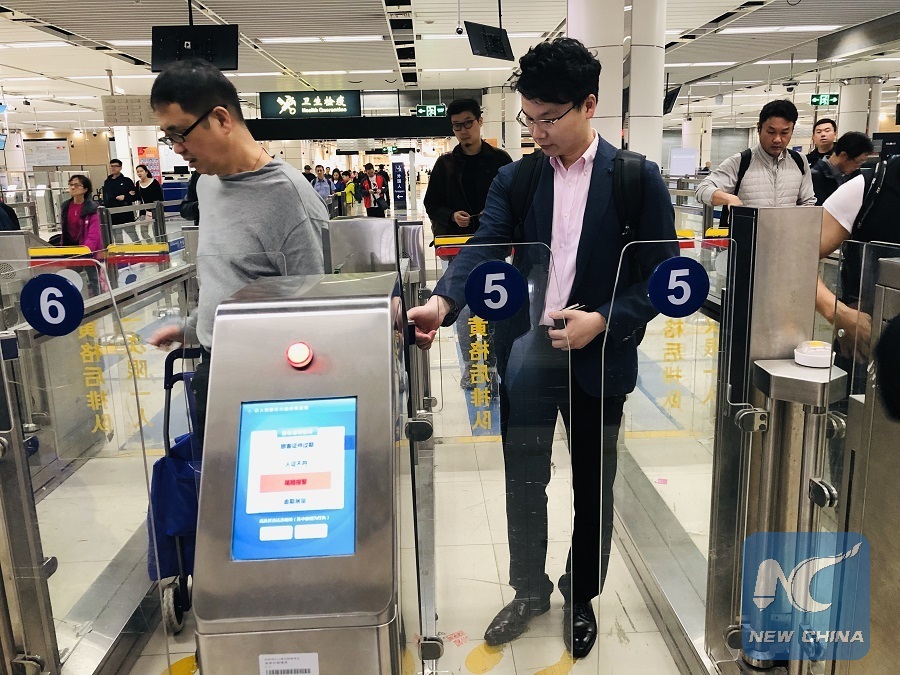
Abraham Lam (2nd R) prepares to get on a bus heading to Shenzhen Bay Port at a bus stop in Yuen Long of Hong Kong's New Territories, Feb. 14, 2019. (Xinhua/Gao Jie)
HONG KONG, Feb. 20 (Xinhua) -- On at least three workdays per week, Abraham Lam commutes between his home in Hong Kong's New Territories and his workplace in Shenzhen, south China's Guangdong Province. He has been such a "dual-city commuter" on the one-hour trip over the past three years.
Lam, born in Hong Kong and now in his 30s, was studying for his PhD at the Hong Kong Polytechnic University in 2012 when he established a startup for innovation on information and communications technology (ICT) solutions for office building facility and energy management.
After his graduation in 2015, Lam decided to set up a branch of his company in Shenzhen's Qianhai, where a Shenzhen-Hong Kong Modern Service Industry Cooperation Zone was just launched and the governments of both Shenzhen and Hong Kong Special Administrative Region (SAR) were encouraging young entrepreneurs to seek opportunities at the startup incubator there.

Abraham Lam passes through an automatic channel at Shenzhen Bay Port, Feb. 14, 2019. (Xinhua/Gao Jie)
"As our ICT solutions had received recognition in the Hong Kong market, we started to consider developing our own intelligent hardware," Lam said, adding that when it comes to hardware development and production, Shenzhen is "a place with abundant resources and talents."
Lam and his partners made the decision also because they agreed that the country's development of the Guangdong-Hong Kong-Macao Greater Bay Area, which consists of nine cities of Guangdong Province as well as Hong Kong and Macao SARs, would bring them more opportunities.
As a role model for deepened cooperation between Hong Kong and Guangdong in the future, Qianhai has adopted a management mode similar to that of Hong Kong. Lam said this made it easier for Hong Kong entrepreneurs to get started in the mainland market.
Instead of "culture shocks," Lam said he was more impressed by the convenience of life in Shenzhen. "When I first got here, I downloaded various APPs on my mobile phone and then I could buy food, hail a taxi and pay bills easily with my phone. It's so convenient."
For the next step, Lam intends to expand his business into the "much bigger" mainland market. He is turning his eyes on other cities in the Greater Bay Area.

Abraham Lam (Standing, R) talks with the staff in the office of his company in Shenzhen's Qianhai, south China's Guangdong Province, Feb. 14, 2019. (Xinhua/Gao Jie)
"The Hong Kong-Zhuhai-Macao Bridge has been put into use, making it much easier to get Zhuhai from Hong Kong. I think Zhuhai may be an ideal place for us to set up a sales center due to lower costs and good talents," he said. "We are also considering moving the business of intelligent hardware packaging and installment there."
After an outline development plan for the Guangdong-Hong Kong-Macao Greater Bay Area was unveiled by the Chinese central government earlier this week, Lam expected Hong Kong to better position itself in the future world-class bay area "so as to give full play to its advantages and overcome its shortages by interacting with other cities in the area."
"In Hong Kong, we practice our skills, and now we are going outside to apply our expertise in a better place," Lam said, expecting to expand his business as well as his living circle beyond Hong Kong and Shenzhen and to other places in the Greater Bay Area.
Besides closer connectivity between cities in the area, he also anticipated more facilitative policies and measures in the Greater Bay Area for Hong Kong young people to "jump on the bandwagon of the country's rapid development."

